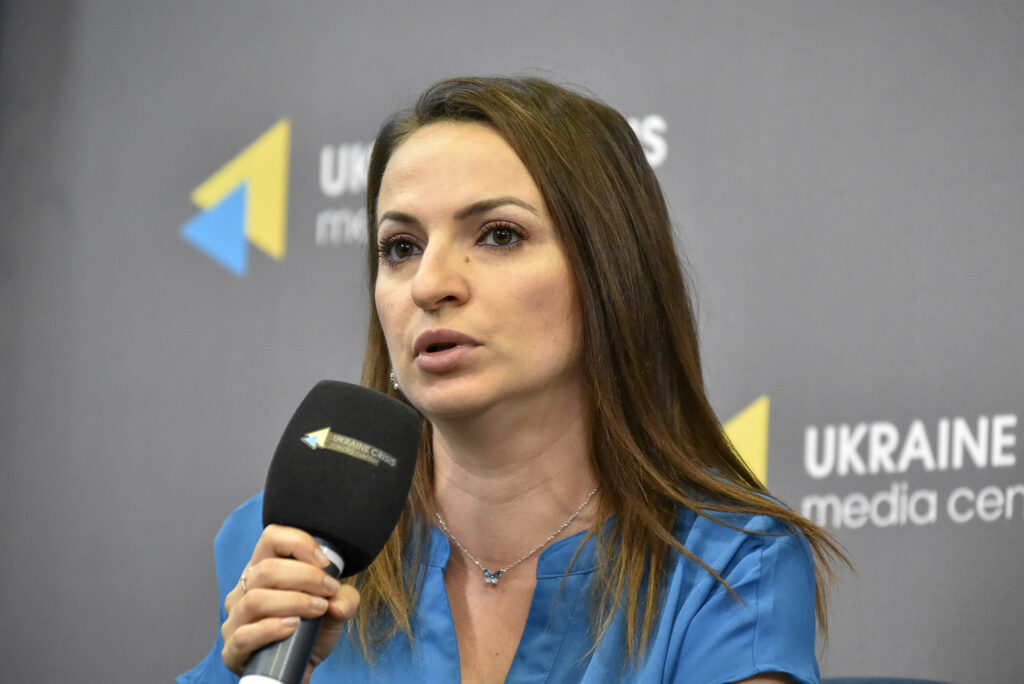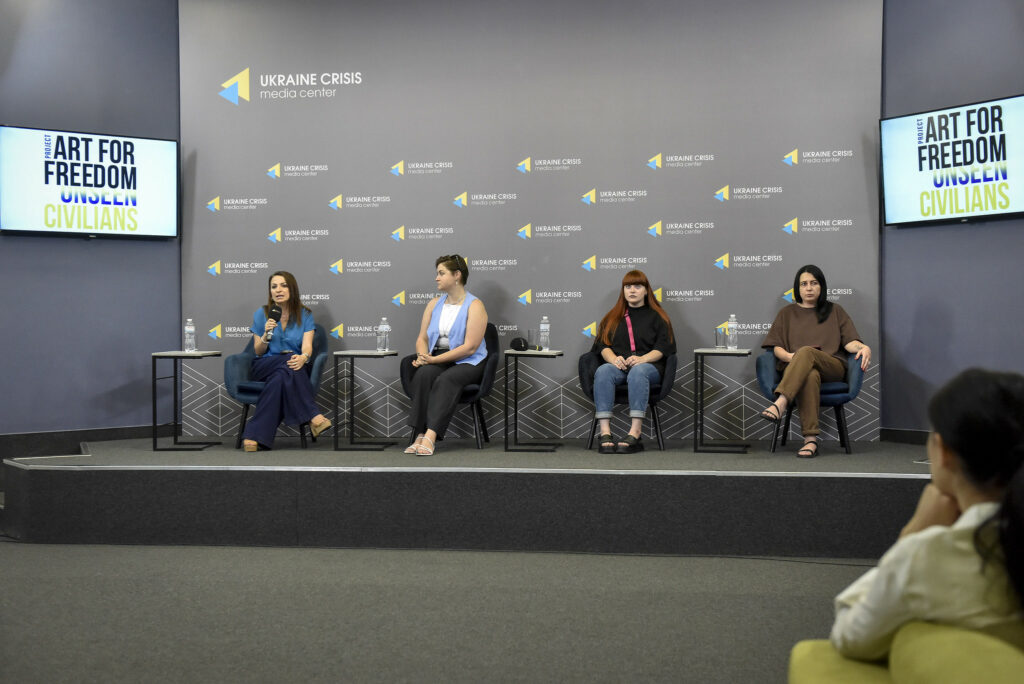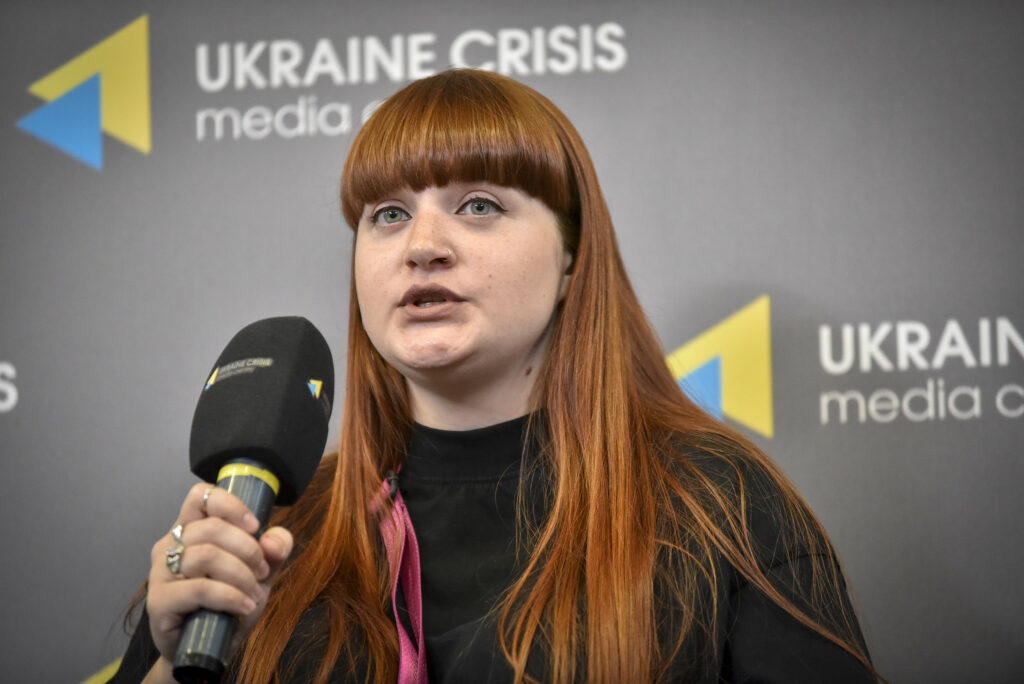Dozens of Ukrainians in the occupied territories ended up behind bars in Russian prisons on trumped-up charges. Their rights are not respected. Russia violates all possible and impossible human and moral laws. They are subjected to torture, locked behind bars, their relatives are not informed about their state of health; they are denied their basic human needs. How to show this problem to the world was discussed at the press conference “Art for freedom: unseen Ukrainian civilians held hostage by Russia.”
“Unfortunately, there are many cases when these civilians simply die or are tortured to death. They allegedly die of heart attacks, strokes, or other diseases. Our project “Art for Freedom: Unseen Civilians” aims to draw attention to the stories of such people, to tell the world about Ukrainian civilians who were taken hostage by the Kremlin and became victims of the regime,” said Khrystyna Shkudor, advocacy manager of the campaign “Where Are Our People?” of the PR Army NGO.
For this purpose, the Common Sense Communications and PR Army NGOs initiated an exhibition of illustrations. It will go to European capitals. It will be shown in Germany, France and Portugal.
According to Oleksandra Romantsova, executive director of the Center for Civil Liberties, the initiative “Tribunal for Putin” (T4P), art space and art channels are the tools that can help to form this vision, an emotional reaction to such stories.
“Today is the International Day of Victims of Illegal Detention. These are not only people who are in prisons, but also those who suffer because their loved ones and relatives are there. And here I just want to draw attention to the fact that before moving on to work at the international level, here in Ukraine, every person can make his contribution by supporting the relatives of political prisoners. We know that people’s attention periodically diverts from Ukrainian problems, and therefore it is necessary to remind the world that every political object outside Ukraine can do its part to help people to return home alive,” the activist urged.
Every demonstration of the crimes committed by the Russian regime is followed by documentation. Yelyzaveta Sokurenko, head of the war crimes documentation department at the ZMINA Human Rights Center, emphasized that the core theme in this work is a person – people who are victims or witnesses, as well as victims’ relatives, who in most cases can also be considered victims of various types of crimes. These are arbitrary detentions, torture, in particular, sexualized torture, ill-treatment, forced disappearances, and extrajudicial executions.
“The research we are conducting, and which is based on the evidence we have collected, shows that Russia has been implementing a systematic and large-scale practice of persecution of the civilian population under occupation. In separate settlements, in small villages, where at least one family has not taken Russian citizenship, we know about the pressure, the use of torture against these people, about their removal from their land by Russian forces,” Yelyzaveta Sokurenko noted.
According to Maryna Hovorukhina, strategic communications specialist of the Common Sense Communications NGO, the polls showed that residents of the EU and the US do not even suspect that there is such a big problem with civilians, and there are no mechanisms for the return of civilian hostages.
“Under international law, civilians cannot be captured at all. Therefore, our organization highlights and actualizes the problem of abduction of Ukrainians for foreigners in order to attract changemakers and increase pressure on Russia, forcing it to return civilians home as soon as possible, because international publicity is an important mechanism that really works, – she explained. – For this, we have been conducting information campaigns in the EU for two years. We call on Europeans to become the voice of Ukrainian hostages, to share their stories, to put pressure on local politicians.”





